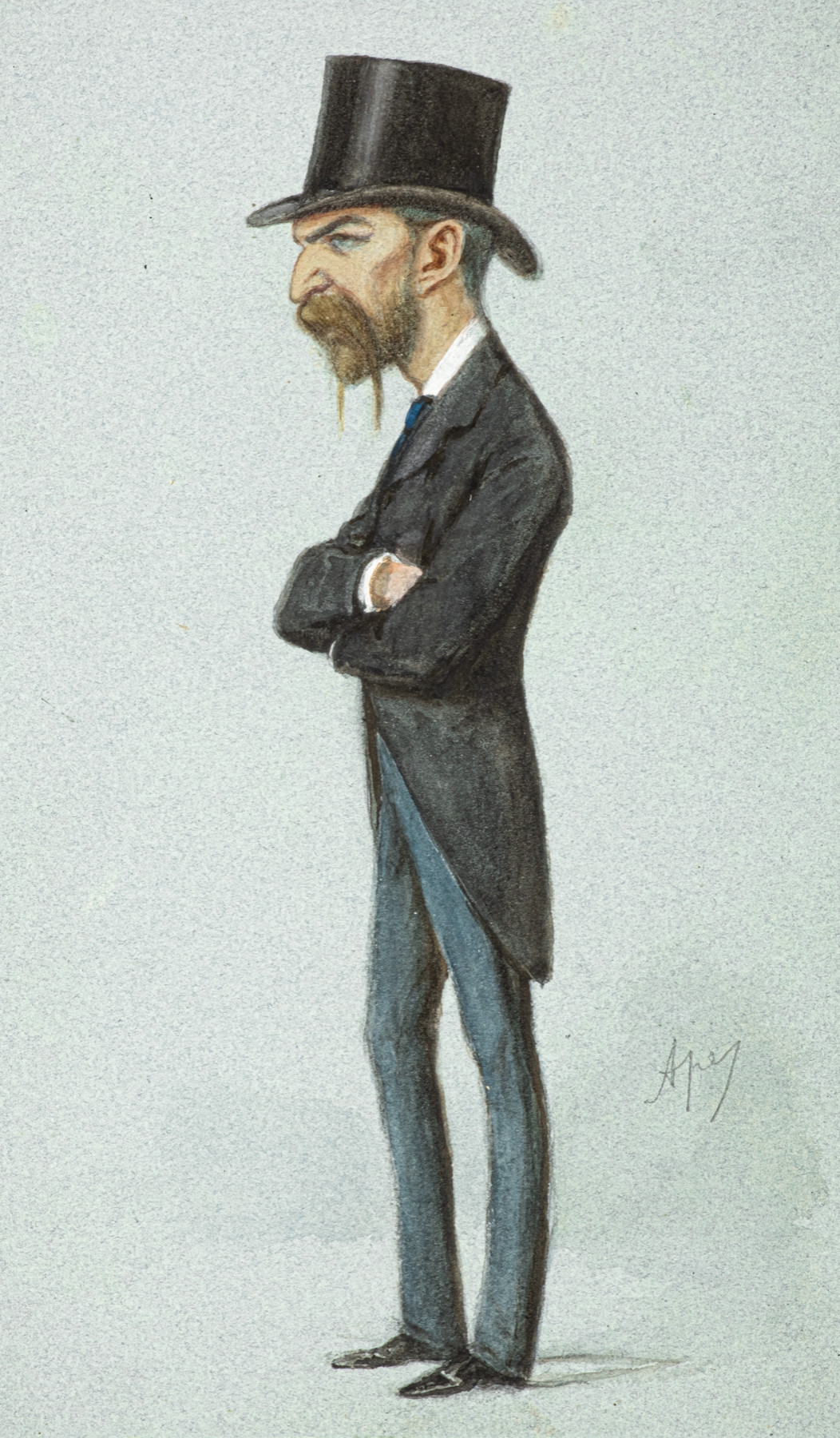
(click image to enlarge)
Paul Lessar (1851-1905) was a Russian Councillor and Diplomat at the Russian Embassy in London between 1883 and 1901. In 1901, he left London to take up the post of Russian plenipotentiary in Peking. He died in 1905 from complications after an operation to amputate his foot.
“The appointment by the Russian Government of M. Paul Lessar as ‘Diplomatic Attaché to the Governor of the Transcaspian,’ and his employment as an Expert-Envoy to London in the matter of the Affghan Frontier, afford a striking example of the skill with which the Russian Cabinet selects its agents. M. Lessar is not by profession a Diplomatist, nor is he by race a Russian; for he was brought up as a civil engineer, and he comes of a Montenegrin family; yet to him has been committed the real direction of the most important and delicate act of that diplomacy by which Russia has obtained the consent of England to the extinction of Affghanistan, and to the permanent establishment of a Russian force within touch of England's tender spot in her Eastern Empire. To take a young foreign civil engineer and to make of him a Diplomatic Envoy on a matter of capital importance, merely because he thoroughly understood the matter and was a man of ability, would in England be accounted as impossible as absurd; but in Russia these affairs are directed neither by the intrigues of a Court nor by the traditions of a Foreign Office, but by the decisions of a trained conclave - the result of which is that the best man is taken, whatever he may be, and wherever he may be found. And M. Lessar is undoubtedly admirably suited for the part he has had given to him to play.
Born four-and-thirty years ago, M. Lessar was educated at the école des ingénieurs in St. Petersburg. Being found to have brains, courage, and energy, he was allowed to accompany General Skobeleff into Asia in order to survey for railways, and in 1880 was attached to General Komaroff, as an expert in surveying and exploration, to work in the Turcoman country between the Caspian and Affghanistan. Established at the advanced station of Askabad, M. Lessar made constant excursions, attended only by a few converted Turcoman brigands; and in November, 1881, he adventured himself through and beyond Sarakhs, across the Affghan frontier, and to within a few miles of Herat, mapping as he went, and remarking, with pleasure, of the Tekke Turcomans who sought to hinder him, that ‘these sons of the desert are not masters of the art of lying.’ So extended and constant were his journeys, that in the course of two years he rode a distance of nearly six thousand miles, having upon occasions ridden no less than ninety-seven miles in the day upon a single horse; and there is probably no living man who knows so well as he the whole ground of the Russo-Persian and Russo-Affghan frontier, or who is so well able to put his finger upon the points thereof that are politically doubtful or militarily important.
Personally M. Lessar is silent and self-contained, yet amiable and courteous, a man of many labours, of much knowledge, of a great, quiet determination, and of a temper which makes him ready to sacrifice not merely ease and comfort, but even life itself to the acquisition of greater powers to deal with his work. He speaks English a little, and French very well. He is a dangerous antagonist.”